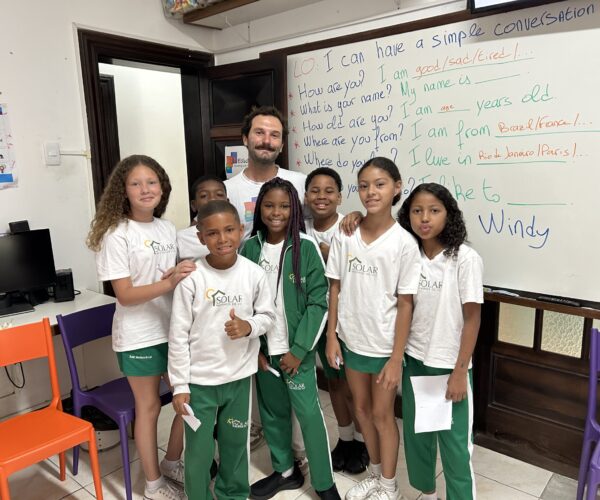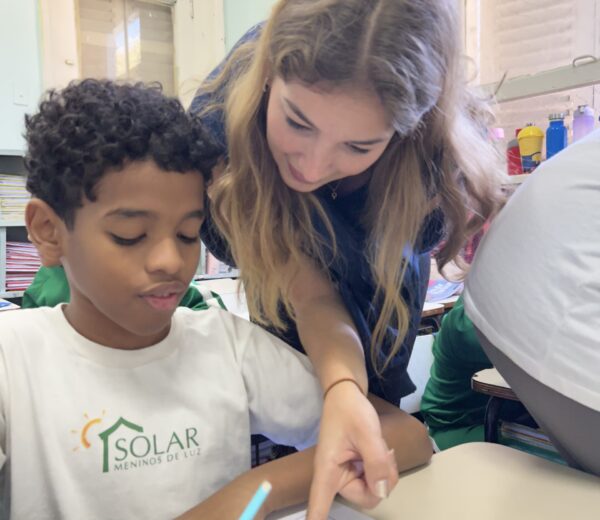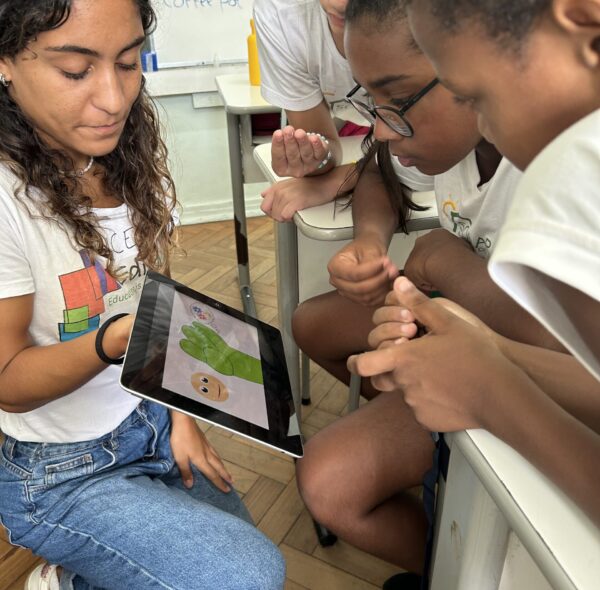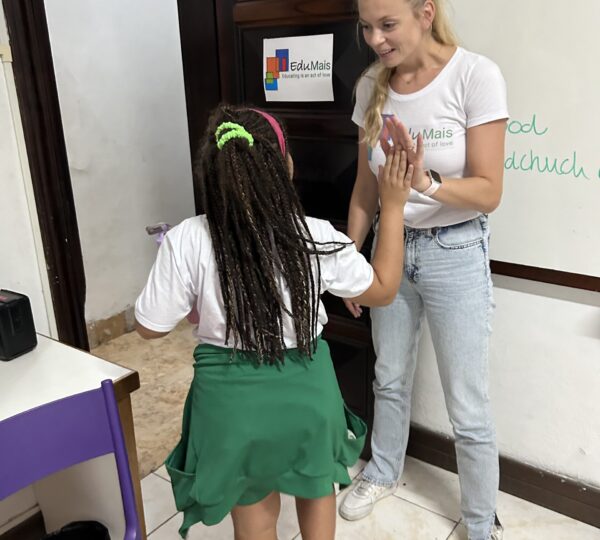It almost goes without saying that speaking English is a vital skill in the modern world. The official language of 53 countries, approximately 1.5 billion people now speak English worldwide, whether natively or as a second language.
English is also the international language of communication, the internet, science, diplomacy, and tourism, as well as many textbooks and universities.
Consequently, learning English is one of the best ways to open doors for our kids. It is their “passport” to the world and better opportunities in the future. Above all, speaking English is fun!
As outlined in Our Methodology, our teaching style is heavily influenced by the UERÊ-MELLO approach. This is an internationally recognised educational model for children and young people in areas of social risk.
Adapted to include the insights of Positive Discipline, our English classes are thus designed not only to work on language skills but also have our students’ well-being at their core.



